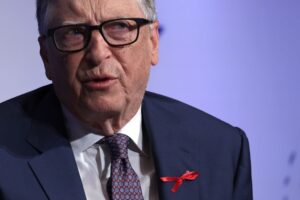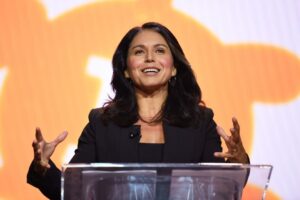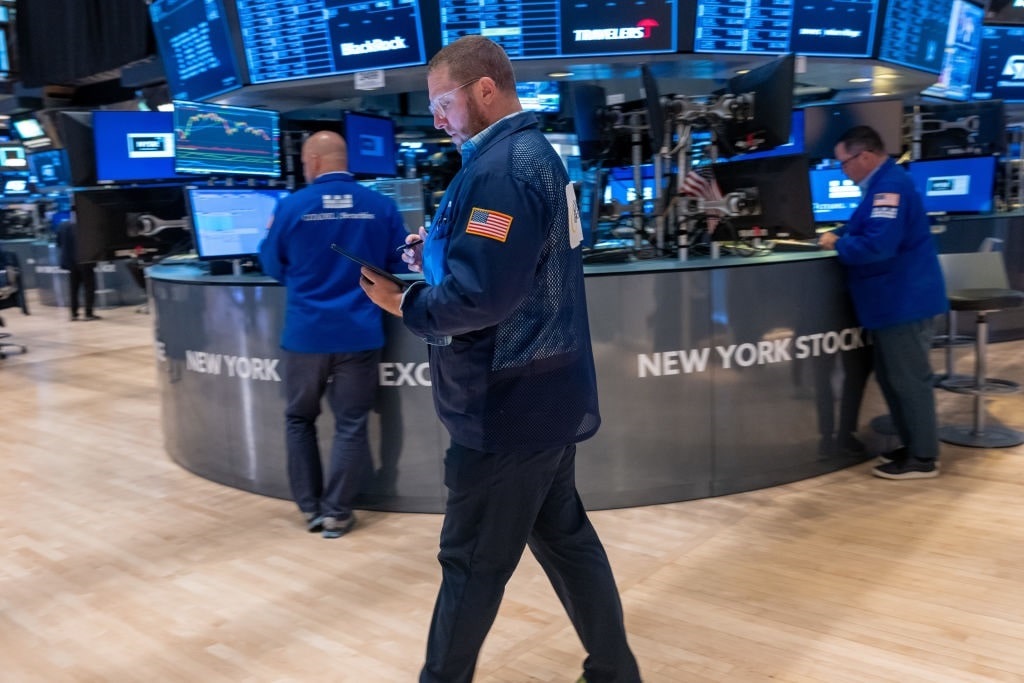There is no denying it anymore: Major US corporations are realigning to partisan Democrat policies. It has become so evident in recent years that even mainstream voices are now wondering what it all means for the nation’s future.
Major soul searching has been in order for some time. After all, how can a significant swath of Americans who have long defined themselves as fiercely standing against the undue power of concentrated private wealth make peace with their new status as overt allies with the moneyed elites?
“It’s not your imagination: Business, especially big business, is more liberal than it used to be, and Democrats are now more comfortable than Republicans with corporate engagement in politics. That’s the takeaway from an academic survey of business leaders and the public described in a pair of papers published last month,” Jason Willick noted in an evenhanded Sept. 3 opinion piece for The Washington Post.
The study he references is authored by researchers Eitan Hersh of Tufts University and Sarang Shah of the University of California at Berkeley. Hersh, an ex-Yale political scientist and professor, is the main player here. He can be best described as one of those “experts” called on to explain those inclinations of regular Americans so often found irksome by the readers of progressive establishment publications such as The New York Times and The Atlantic. Case in point: “Understanding Trump’s triumph: Q&A with Eitan Hersh” was published by Yale News one week after the 2016 presidential election.
Businesses Drift to the Democrat Side of Politics
Hersh is now turning his attention to explaining how Democrats have become the party of insider Wall Street power after spending decades attempting to paint themselves as defenders of the working class. “Across a range of industries, business leaders see their companies as moving toward the Democratic Party,” the study states. “Those who perceive their companies as Democratic-aligned believe that the company’s core policy priority is not economic or particularistic, but relates to broader social and environmental policies prioritized by the Democratic Party.”
Remarkably, Hersh and Shah are saying that despite widely reported examples of “woke” corporations in action, Americans actually underestimate how dramatic the corporate shift across the political aisle has been. The study continues:
“Business leaders in general, and within every partisan cohort, believe that the national business community, the state business community, and their own business has become more aligned with the Democrats in the last decade. With regard to their own companies, it is the Democratic business leaders who are most likely to perceive a Democratic shift. This evidence is inconsistent with the notion that the story of ‘woke corporations’ is something merely in the heads of strong Republicans and conservative pundits. Business elites of all parties sense a change is underway.”
This is happening, they note, at the same time the Republican Party is embracing populist nationalism under Trump:
“While the American two-party system is stable in its party labels, the policy-demanding constituency groups that pressure political parties shift over time. The ongoing development of the Democratic Party as a party not of labor but of socio-economic elites, and the ongoing development of the Republican Party as a party not of business but of working class social conservatives represents a major, perhaps the major, American political development of the twenty-first century.”
The study itself is rather dry and statistical, but Hersh fleshed out his findings in a July conversation with The Niskanen Center, a Washington think tank. “It feels a long time ago now that when we thought about business leaders, we thought about oil companies or the Koch brothers,” he said. “If we look at CEO activism over the last decade, it’s overwhelmingly on left-leaning issues, the public stuff. So the question is, how do you know whether a company or a set of companies or business elites, in general, are moving one way or the other? And that’s what our paper is trying to weigh in on.”
Spokes in Something Much Bigger
What Hersh fails to do, however, is tie this significant new corporate political structure to the even larger forces of progressive globalism in the ruling establishment.

Bill Gates (Photo by Alex Wong/Getty Images)
Just last month, the Bill & Melinda Gates Foundation bestowed a $635,000 grant on the US Chamber of Commerce Foundation for “Postsecondary Education, Public Awareness and Analysis.” In October 2022, the Gates Foundation gave a cool $300,000 to the Chamber entity. That means notorious progressive globalist billionaire Bill Gates has given the leading association of major US corporations nearly $1 million in funding during the past year. Is this really a sign of increasing “liberalism” by corporate interests or evidence of a natural alignment that goes far beyond the politics of left and right?
The list of corporate partners to Klaus Schwab’s World Economic Forum runs into the hundreds. “The community of [WEF] Strategic Partners comprises 100 leading companies from around the world, each selected for their commitment to improving the state of the world,” a post on the group’s website reads of one corporate grouping alone. “The partners believe in the power of collaboration to drive positive change, and work closely with the World Economic Forum to help shape industry, regional and global agendas.” Listed Strategic Partners include Amazon, Bank of America, Goldman Sachs, Mastercard, Nestle, PepsiCo, and Procter & Gamble. Right alongside those names are the Bill & Melinda Gates Foundation and George Soros’ Open Society Foundations.
Democrats have not just become the party of Wall Street. They have also firmly tied themselves to the “Deep State” institutions they once despised. The CIA and FBI overnight went from being the supposed orchestrators of fascist coups in independent foreign nations to the fearless defenders of “democracy,” fighting insurrectionist Trump supporters here at home.
Democrats who once claimed to represent the “voice of the little guy” now work with social media goliaths such as Google, Facebook, and Twitter to ruthlessly suppress opinions from average Americans that dare to diverge from blue orthodoxy. The Democratic National Committee has openly stated that it has no intention of allowing anti-establishment 2024 Democrat presidential candidate Robert F. Kennedy Jr. to debate a tottering and deeply unpopular President Joe Biden during the party primary season.

Tulsi Gabbard (Photo by Jason Koerner/Getty Images for Bitcoin Magazine)
Democrats have also increasingly become the party of war. While Trump-aligned Republicans express mounting exasperation with the vast expenditures of US taxpayer money to provide military aid to Ukraine and the ongoing effort to push NATO ever closer onto Russia’s natural borders, Democrats such as 2020 presidential candidate Tulsi Gabbard have been driven out of the ranks for daring to oppose the new hawkish foreign policy that defines the party today.
To call all this “liberalism” is to miss the mark entirely. Hersh is correct to call the mushrooming big corporate and Democrat alliance “one of the most significant changes in American politics in decades,” yet he seems unable, or unwilling, to explain what this change truly means.
A new power bloc is being constructed in America today. It is elitist and trans-national in nature, and it sees the regular citizens once supposedly championed by the Democratic Party as an oppositional force to be overcome.




